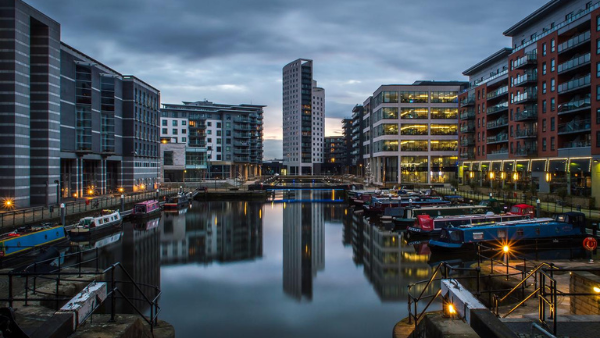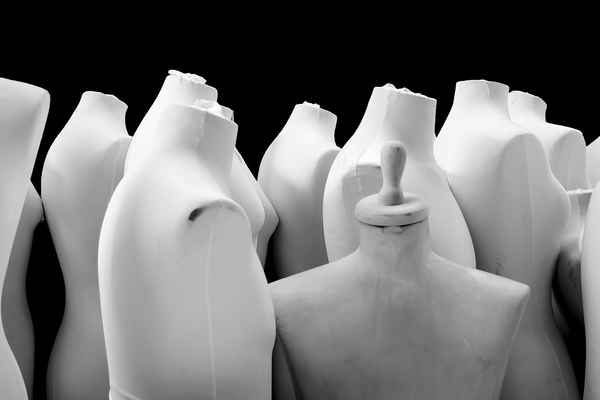The election is nearly upon us but few people feel inspired by the choices on offer. There are differences between the traditional major parties but questions of leadership and basic competence seem to matter more than contrasting visions for the future. Even if we do see a substantive choice, we are sceptical about the capacity of any party to take the country in a different direction.
Yet outside the realm of conventional political news, an important debate is taking shape. In essence this is about what kind of economy we want in the medium to long term (2030 seems to be the most popular focal point).
There are several reasons why this is happening:
- We in Britain have emerged from the 2008 recession. The talk is no longer about how to escape crisis but how to avoid future crises and how to lay the foundations for future prosperity.
- Despite a healthy current growth rate, the UK economy is unlikely to prosper in the long term without addressing a number of structural weaknesses (business investment, productivity and balance of trade being the most obvious).
- Regardless of whether the economy performs well according to measures such as growth and employment, the externalities of the current economy in relation to low living standards and high inequality infringe important values such as fairness and responsibility and are, arguably, politically unsustainable.
- Predicted trends, in relation to the impact of ageing, globalisation, climate change and, particularly, technology, threaten to exacerbate poverty, inequality and instability.
- The tendentious neo-liberal dogma that it would be dangerous or futile to guide the economy in any direction other than where it is led by the hidden hand of the free market is at last starting to lose its grip on our imagination
- Finally, and this point relates more directly to the RSA’s Power to Create mission, the current economy, even if it makes incremental progress, will continue to deny many, if not most, people the chance to live fulfilling and creative working lives.
Here, plucked at random from things I have read over the last two weeks, are four quotes that capture this questing for a more substantive debate about our economic future:
John Lanchester on the second machine age:
'It says a lot about the current moment that as we stand facing a future which might resemble either a hyper-capitalist dystopia or a socialist paradise, the second option doesn’t get a mention.'
Matt Sleat on the future of liberalism:
‘And maybe, most importantly, renewing the liberal commitment to resisting all forms of superior power – political, social or economic – might allow for a political discussion about the relationship between economics and politics that doesn’t quickly descend into sterile debates about whether a party seeks more or less business regulation, as if it were a good or bad in itself but instead focusses on the bigger question of what sort of economies 21st century liberal societies require’
The Fabian Society in its report Inequality 2030:
'...in 2030 living standards and the extent of inequality will be determined by political choices rather than by unstoppable economic forces’
Charlie Leadbeater on the ‘whirlpool economy’
'Stagnation and innovation will often come together as we try to combine the apparently impossible. We will feel as if we are richer (in free and low-cost technology), and yet poorer (in terms of disposable income) at the same time. The organisations we work for become increasingly fluid, flexible and provisional, while the social structure of our society becomes more stubbornly stuck…..Society will become more cautious and more reckless at the same time. What hope is there that we might break out of this cycle?'
So I have decided to make an economy of human flourishing the focus of my annual lecture in July. My thinking is at an early stage and I am writing this post partly to elicit some suggestions for readings and directions of thought.
My initial sense is that the speech needs to address three barriers to believing we can create – to adapt Matt Sleat’s phrase – the sort of economy a 21st century liberal society requires.
First we need to assert the primacy of politics in determining the shape of our economy. Democratic choice cannot defy gravity nor can one nation hope entirely to control its destiny in a shrinking world, nevertheless we can and should make choices. There are different ideas of progress, of the relationship between economic growth and social advance, and there are radically different routes to prosperity. It may be that none of the major parties have gone anywhere near articulating an engaging and coherent vision of the UK economy in 2030 but this should be just the kind of question that politics is there to explore.
Second, we need to define what would comprise a successful 2030 economy. What are the key measures of human welfare that would tell us that we had made progress? Social justice, well-being, human flourishing, giving care the status it deserves, environmental sustainability; these might all be areas where we would want to define minimum success criteria.
Third, we need a high level strategy for how we get from here to there. Broadly this is about the kinds of governance, the kinds of (market based) economic systems and the kind of civic values and norms we need to interlock to enable a step change in human welfare. I suspect I will return here to the ideas about what makes societies resilient and dynamic which I laid out in my 2013 annual lecture.
The debate over the kind of economy we can and should build for 2030 is still too nascent and abstract to be influencing the General Election but it is growing. Over the coming years or so I want the RSA to play an important role in opening up that debate and making it real to anyone interested in our country’s future.
Related articles
-
Culture should be at the core of West Yorkshire's economic plans
Andy Haldane Tracy Brabin
Andy Haldane and Tracy Brabin, Mayor of West Yorkshire, discuss how investing in culture and creative industries can make a success of local growth and levelling up.
-
4 ways Covid-19 will change the fashion industry
Josie Warden
Lockdown is changing shopping habits. The crisis could be a chance for positive change.
-
Fashion is broken: where can it go from here?
Josie Warden
It’s the end of London Fashion Week and 180 Strand has been abuzz with glamour. But all is not well. The fashion industry is having an existential crisis.



Join the discussion
Comments
Please login to post a comment or reply
Don't have an account? Click here to register.
Sorry for the abrupt ending - cat paw on keyboard.
There is more to life than working in a dead end job on zero hour contract , it's just hard to imagine after a 7 days of shift work on minimum wage. Although, no doubt even that is viewed as a sign of successful 21st century economy by somebody.
I have great faith in British technology and I believe it will come up with goods to make living better and sustainably possible for people on low incomes in the future . No doubt everyone can think of at least way to stop public money and low waged peoples income pouring into private landlords pockets. Local renewable energy schemes in the long term will mean more disposable income for all.
However I believe valuing 'soft skills ' of friendship, kinship safety, creativity, learning, community, small scale employment, and side stepping government, will make the transition bearable up to 2030.
I can not offer any references. But here are my thoughts/feelings for what they are worth
There are huge issues about inequality between nations and this is manifesting itself in migration .
Then there is the inequality in this nation. It is presented as a nasty dose of medicine that is good for us or will be. Housing shortages making homes unafforadable to buy or rent, long term (student) debt, a 'flexible' low wage work force, lack of tax revenue is good news for some. The there is the EU , in or out , it is a leap in the dark - very dark according to both sides of the debate.
However there are glimmerings of hope . Society has left many high and dry and this is 'freeing up people to think about what can they do. For example the rise of Etsy/Folksy, Food Assembly, success of ecotricity, technological developments that make local renewable energy projects viable ( fuel and rent a huge chunk out of local ecomonies) Kickstarter, the rise of websites promoting British Manufacturing, the RSA Fellow's Walk the Line employment initiative.
People will and are developing things that make life bearable Things like community kinship, friends , creativity , purpose .Long tern stable employment and adequate housing provided some of this .However t`hidifficult with families being moved around in an unstable housing marke
In 2009 Miguel D’Escoto Brockmann, the President of the United Nations General Assembly offered this in a speech:
"The anti-values of greed, individualism and exclusion should be replaced by solidarity, common good and inclusion. The objective of our economic and social activity should not be the limitless, endless, mindless accumulation of wealth in a profit-centred economy but rather a people-centred economy that guarantees human needs, human rights, and human security, as well as conserves life on earth. These should be universal values that underpin our ethical and moral responsibility."
In 1996, our work on people-centered economics had begun with a question about purpose.
What is the purpose of business?
There is one thing that has to be done in order to build an economy that works for people: We need to shorten work hours proportionally to the unemployment rate. Please see more about it here: http://www.sarovic.com/2013_01_18e.htm. It will help capitalism as well.
Hi Matthew,
I really welcome this as a focus for your annual lecture. I'm not sure I have much penetrating insight to add to your list of themes. Perhaps there might be merit in using Sen/Nussbaum's ideas on capability? Perhaps some of the ideas about ecosystem services or natural capital might add something, or even George Monbiot's ideas about rewilding and reconnecting? Without getting too carrie away, something about the role of science in not just making our lives easier and better, but in relation to the grand questions it poses us about what life is about, our place in the cosmos, the future of humanity etc? Now that would be a large politics!